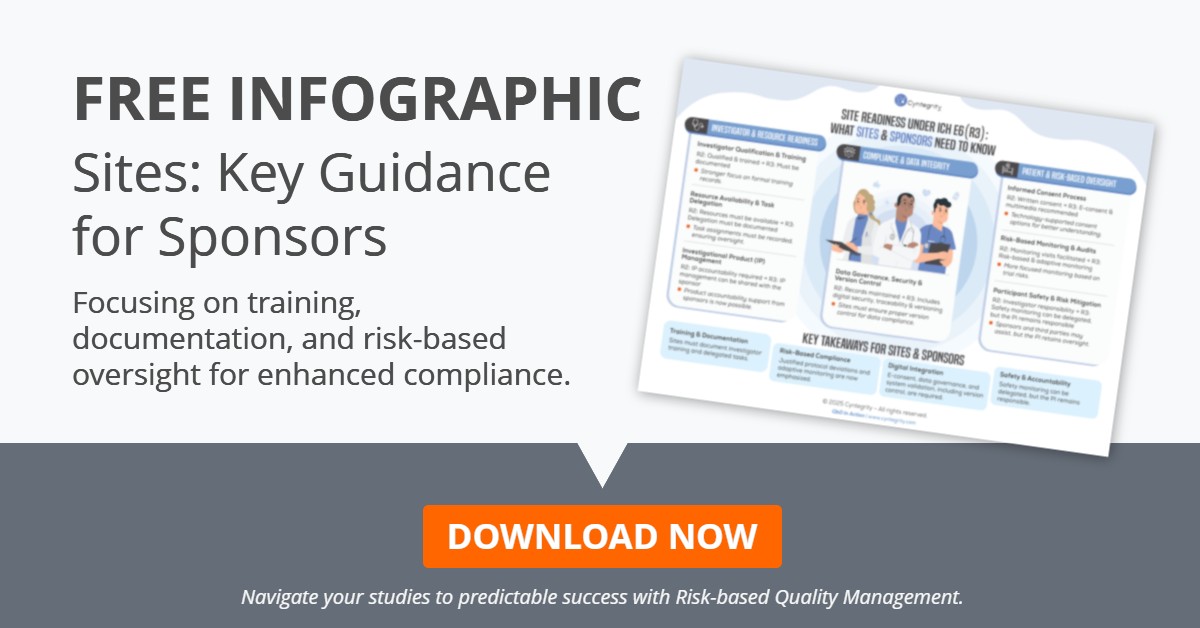
What feeling do you have, when starting a new clinical trial? Do you hope all past problems will stay in the past? Everything will be better from now on…
Why Clinical Trials Fail? To answer this question, we surveyed a number of clinical research specialists and analyzed best practices publications by the EMA and FDA. When zooming in on the project management side, the skill set of project managers seems to be a critical source of error according to the industry experts. Does that surprise you?
Before jumping to conclusions, let’s continue with another question: what does it actually mean, “failure” in context of a clinical trial?
Well, failures in clinical research usually occur in two dimensions:
- Project failure, e.g. the budget has been overspent, project targets haven’t been achieved and deadlines haven’t been met.
- Research failure, e.g. not being able to reach statistical significance in a research area and so failed to prove the efficacy of a drug or obtain controversial results.
Obviously both dimensions cover two very large areas of clinical research. For sake of ease, let’s assume that we have met the following research conditions:
- The candidate drug is safe and efficacious;
- The study design is adequate;
- The study is conducted according to Good Clinical Practice;
Interestingly enough, when we focus on the project management side of clinical studies, we found that the surveyed experts identify the project manager’s skill set as the most common source of issues.

7 Reasons Why Clinical Trials Fail:
1. Unskilled Project Manager
Lack of risk-management forecasting and poor motivation of the team are observed as the most popular “sins” of a project manager. The surveyed experts explain that these shortcomings are caused by project managers moving from a CRA role into a project management role often with little to no experience in scoping out and costing of clinical trials or, in fact, any larger project. This consequently leads to weak project planning and implementation failures. These inexperienced project managers tend to define unrealistic timelines and fail to involve key stakeholders in the decision-making, resulting in absenteeism of team members and eventually an unproductive group.
2. Unproductive Team
Projects don’t get done by themselves and a project manager alone cannot achieve anything without a team. There are quite a few factors that can impact team efficiency negatively, such as a low team spirit and motivation, lack of experience in collaboration, high personnel turnover and an unbalanced team hierarchy.
According to our surveyees, high employment turnover is one of the major contributors to dysfunctional teams. The experts expressed their concerns about the evolving trend of frequent company and job switching in today’s pharma industry. It may be clear that problems will get “pre-programmed” if the team that executes the study, is not the same team that designed and planned it. In addition, losing a key team member, such as an investigator or CRA, in the midst of a trial is like a pilot parachuting from his plane expecting his passengers to continue flying. The loss of individual expertise and skills, i.e. human capital, seems to pose a major challenge.
The second biggest hurdle in the eyes of the surveyed experts concerns an unbalanced team hierarchy. Weak management skills disturb the productive mood. E.g. if the voice of a leading investigator has been given too much weight during the study setup, then the team’s motivation drops dramatically. This approach mostly results in a low team engagement with no desire to continue pro-active study participation and adopt a pro-active attitude towards questionable data quality. The surveyees warn that non-involved teams will find it hard to deal with protocol complexity.
3. Complexity of Protocol
Trying to ‘answer’ too many questions in one single trial is seen as a regular problem leading to study failure. The surveyed experts stated that the large number of protocol amendments that follow, which are supposed to remove half of the initial endpoints, is a clear indicator of protocol over-complexity.
4. Dilemma ‘Project Completion Targets’ vs. ‘Eligibility of the Volunteers’
A challenging situation arises, when project management hits the conflicting interests of research. On the one hand, sites receive recruiting targets; on the other hand, they face limitations of eligibility of volunteers. Often project management finds itself caught between two fires, i.e. the CROs and sites. Also in these cases the surveyed observe similar dynamics, such as a significant drop in motivation with no desire to continue pro-active study participation and adopt a pro-active attitude towards questionable data quality.
5. Poor Training & Poor Verification
Another reason mentioned for failure is the lack of well-structured training of study sites. Only a competence-based training and competence-based verification guarantees well-designed standards and reduces study variability. Variability in measuring procedures may be critical for clinical studies. It increases the confidence intervals of key indicators and introduces risks of obtaining results of statistical insignificance. It is very likely that poor training will result in ethical issues and poor data quality.
6. Ethical Issues
It cannot be assumed that everyone understands the “value of honesty”, or is sensitive to it. From time to time breaches occur, either consciously, or sometimes subconsciously. In the event of the first, it is defined as “fraud”, in the latter event you can get away with “sloppiness”. Ethical issues introduce a high risk of trial failure, severely damaging the reputation of all parties involved, i.e. the pharmaceutical company, the CRO and the pharmaceutical physicians. Too many industry cases illustrate that alleged short-term gains can rapidly turn into long-term losses.
7. Data Quality
Clinical data build the key evidence and conclusive results of any clinical trial. Therefore, data quality is key to successful study closure. The absence of data quality monitoring during study conduct will understandably have regrettable consequences. The introduction of noise due to miscalibration of measurement devices, or misunderstanding of measurement methods for example, will negatively influence the resulting confidence intervals and subsequently the critical trial outcomes.
Some companies offer a regular manual statistical quality check of raw clinical data; others offer statistical data-surveillance services during a clinical trial. This preventive service functions like an “early smoke detector” in the study, preventing an actual fire to break out. One of these preventive risk-based monitoring services is Cyntegrity’s RBM/RBQM solution “EarlyBird”.
Regardless of all risks and challenges, project managers need a stroke of luck bringing a clinical trial to a successful end. Some project managers call it “The Luck Factor”. Sometimes luck comes with experience, with a healthy corporate culture, but mostly it strikes for no reason at all.
Apart from the complexity of a project, I wish you a serenity to accept the things you cannot change, the courage to change the things you can, and the wisdom to know where the difference lies.
– Artem Andrianov
NEW | The Clinical Researcher’s Guide to RBQM
Discover the future of clinical research with “The Clinical Researcher’s Guide to RBQM” by Artem Andrianov, PhD, and Johann Proeve, PhD.
This comprehensive guide (160+ pages Kindle edition) explores the principles of risk-based quality management, offering invaluable insights for optimizing clinical trials. Don’t miss your chance to be at the forefront of innovation in biopharmaceutical product development.








Well said, the design and eligibility criteria leads to failure of a trial especially where not all team players are involved at the right point and when we are in a hurry to get the trial going (setting unrealistic timelines). These can also lead to unethical conduct of a trial.
The above reasons are real and important. I would like to add that the choice of investigators, site personel recently working in clinical research and having not or too little training, poor communication between teams from upper management, project manager having knowledge but having poor management skills, high turnover and tight timelines, work overload for all parties are other reasons for failure.
Beside this very comprehensive overview in the previous messages , the start of the negative outcome of a trial or drugdevelopment process at all , is probably also related on a row of wrong decisions what already starts by misinterpretation of preclinical results. Often decisions are triggered by the interest of an internal group of a company to communicate a more positive sound of a message to external investors .
A very awesome blog post. I am really grateful for your blog post. Thanks for sharing.